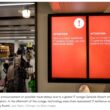Qwest agrees to provide Vonage E-911 access
Qwest Communications will give Vonage access to its E-911 interconnection trunks, which will allow the leading consumer VoIP provider to provide E-911 services in Qwest’s region, according to letters Vonage filed with the FCC this week.
Qwest’s decision follows its successful trial of Vonage’s E-911 solution in King County, Wash. The Vonage E-911 solution is being used throughout Rhode Island–one of the few U.S. states where an incumbent carrier does not control the selective router, which is crucial to access to the E-911 system.
Many industry observers have questioned whether ILECs would be willing to give Vonage access to their selective routers, because E-911 service is the primary feature advantage traditional telecom carriers have when competing against upstart VoIP providers. Vonage Chairman and CEO Jeffrey Citron referenced this competitive reality in a letter to Qwest Chairman and CEO Richard Notebaert.
“With the access that Qwest has agreed to provide, Vonage will be able to route emergency service calls placed by its customers directly to public-safety operators, which will help save lives and safeguard property,” Citron wrote. “I applaud you for your willingness to put the health and safety of Americans before short-term competitive considerations.”
Except for Rhode Island, Vonage’s 911 service has delivered calls for emergency service only to the administrative offices of a public-safety answering point (PSAP), instead of connecting directly to a trained E-911 dispatcher.
Although the National Emergency Number Association supported VoIP providers calling the 10-digit administrative number as an interim step to the 911 problem, the organization recently deemed such solutions “unacceptable.” The Association of Public-Safety Communications Officers has consistently rejected the notion that PSAPs should be required to accept emergency calls on their administrative lines.
In an April 15 letter to FCC Chairman Kevin Martin, APCO President Greg Ballentine blasted a Vonage FCC filing that APCO officials characterized as a request to “force” PSAPs to change their operations and provide 911 services over their administrative lines.
“This is not an acceptable solution, as it negates the benefits of a 21st century technology by reverting back to a 1960s method of reporting life-threatening emergencies,” Ballentine said in a prepared statement. “Routing VoIP 911 calls to 10-digit emergency numbers disrupts and strains the limited resources of PSAPs, which are already struggling to provide wireless E-911 capability.”
But Vonage attorney Bill Wilhelm said APCO may have misinterpreted Vonage’s position, noting that the VoIP provider asked only that 911 calls from VoIP customers to PSAP administrative lines not be blocked.
“In those areas where the Bell operating companies won’t allow us access [to E-911 infrastructure], there’s no choice” other than delivering 911 calls to PSAP’s administrative lines, Wilhelm said.
While Qwest has agreed to give Vonage access to its E-911 selective routers and trunks, other ILECs have balked to date. Citron has written letters to the CEOs of SBC Communications, Verizon Communications and BellSouth in an effort to reach an agreement with those telecom providers.
“Vonage is asking for access to the E-911 infrastructure,” Wilhelm said. “The public has paid for it, and the entire public should be allowed to use it,” regardless of the technology they use to make voice calls.
Even if Vonage gains access to the E-911 infrastructure, Vonage customers must manually input the location of their phone at a given time to have their 911 calls delivered to the proper PSAP.

















